The time taken to provide Pharmacy First warrants more than £15 per delivery of service – says Saghir Ahmed
The launch of Pharmacy First last year marked a significant milestone for the community pharmacy sector, but the journey has been far from easy.
Pharmacy teams have had to struggle with IT glitches, a weak NHS marketing campaign, and low GP referral rates, combined with ongoing financial and operational pressures, making it difficult for many to meet the monthly payment thresholds.
Despite facing numerous challenges, Imaan Healthcare have successfully conducted over 32,000 Pharmacy First consultations across their network since the service started.
Saghir Ahmed, director of operations & development at Green Life Pharma and Imaan Healthcare, told Pharmacy Business that nearly all of their 70 community pharmacies have consistently achieved the clinical pathways thresholds each month.
However, he cautioned that the current target of 30 consultations per month may become “unachievable” in a few months as the conditions covered are very winter-centric, stressing the need to reduce the monthly thresholds.
When asked what support or improvements are needed to enhance the service, he emphasised the importance of GP engagement, stating, “GPs need to support the delivery of the service and realise that this helps them.”
“We also need more pathways developed for other conditions.”
Ahmed highlighted that pharmacists have been able to deliver the service effectively as “the PGDs and pathways are well designed by NHS England.”
He emphasised that pharmacists should now be with further expansion of the service.
Furthermore, Ahmed stressed the need to reassess reimbursement levels.
“Pharmacists will never refuse to see a patient, but the time taken to provide the service warrants more than £15 per delivery of service.
“Furthermore, this fee is only applicable if the patient meets gateway criteria, and pharmacists are seeing patients who do not meet gateway criteria but still finding ways to treat them. They need to be reimbursed for their time and expertise.”
What key recommendations to policymakers for improving the Pharmacy First scheme moving forward?
When asked about key recommendations for improving the Pharmacy First scheme, Ahmed stated, “Expand the service and reimburse at an adequate and fair rate.”
Need financial stabilisation before service expansion
Since its launch on 31st January 2024, nearly 98 per cent of community pharmacies have registered to provide the Pharmacy First service.
According to Community Pharmacy England (CPE), almost two million Pharmacy First consultations have now been delivered over the past 12 months.
The Committee has been advocating for the expansion of Pharmacy First, with proposals to introduce additional clinical pathways and incorporate independent prescribing within the service. These recommendations were key elements of its submission to the NHS 10-Year Health Plan.
However, the Committee emphasised that such developments would only be achievable if the government and NHS first commit to “financial stabilisation of the sector.”
For further developing Pharmacy First, it recommends launching a much bigger, ongoing public awareness campaign; implementing measures to boost referral rates from GP practices and NHS 111; and expanding the walk-in element to all parts of the service.










 Health Secretary Wes Streeting addresses Pharmacy Conference via video
Health Secretary Wes Streeting addresses Pharmacy Conference via video 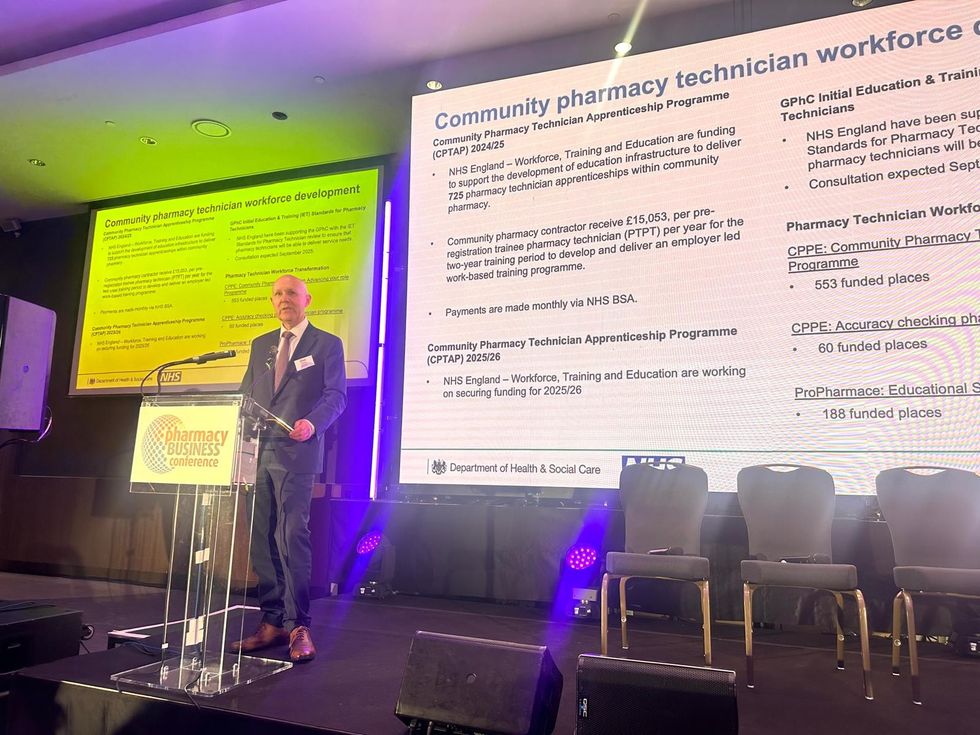 David Webb, chief pharmaceutical officer of NHS England
David Webb, chief pharmaceutical officer of NHS England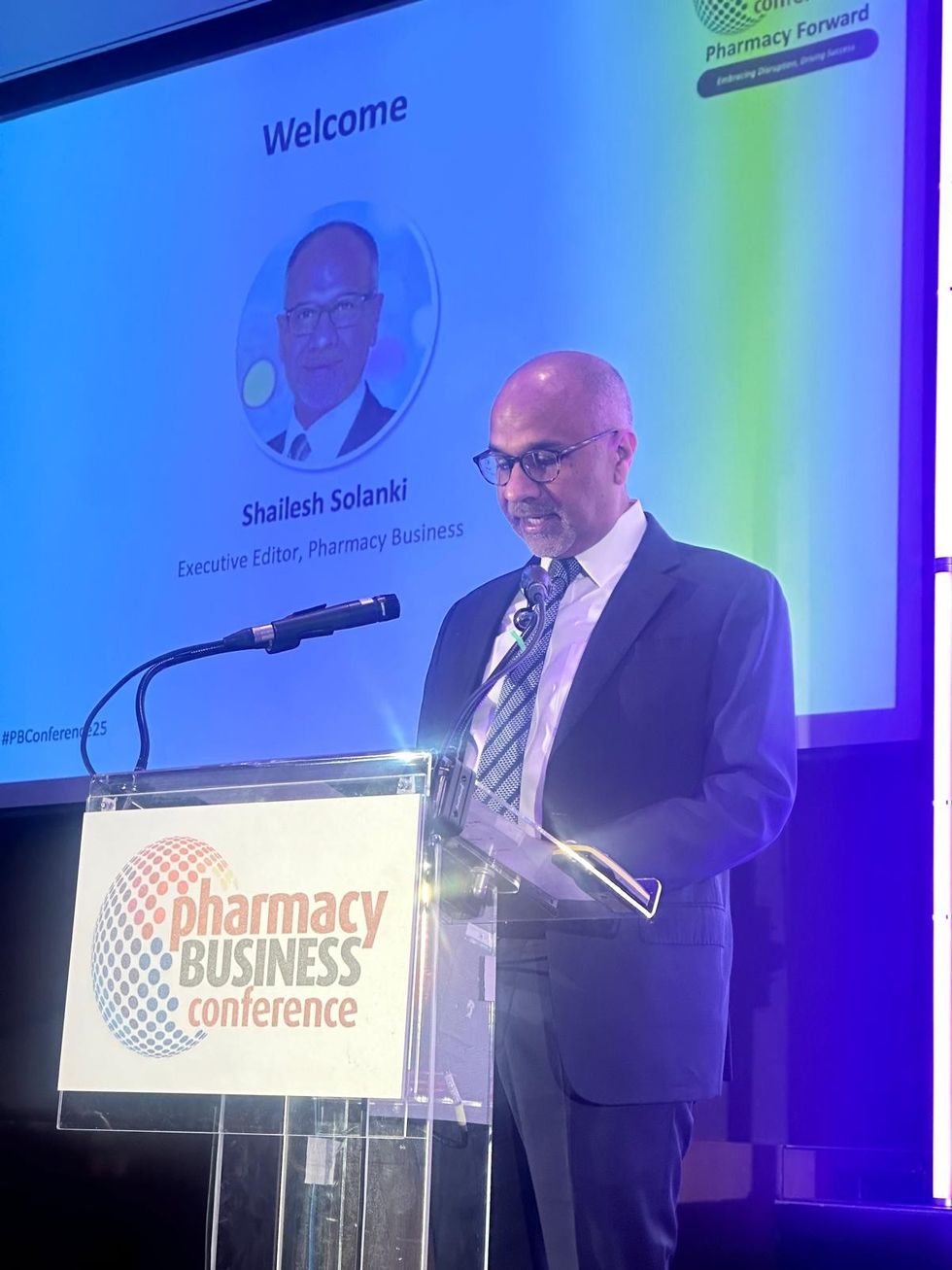 Shailesh Solanki, executive editor of Pharmacy Business
Shailesh Solanki, executive editor of Pharmacy Business L-R: Yasmin Karsan, Pritee Panchmatia and Fin McCaul
L-R: Yasmin Karsan, Pritee Panchmatia and Fin McCaul 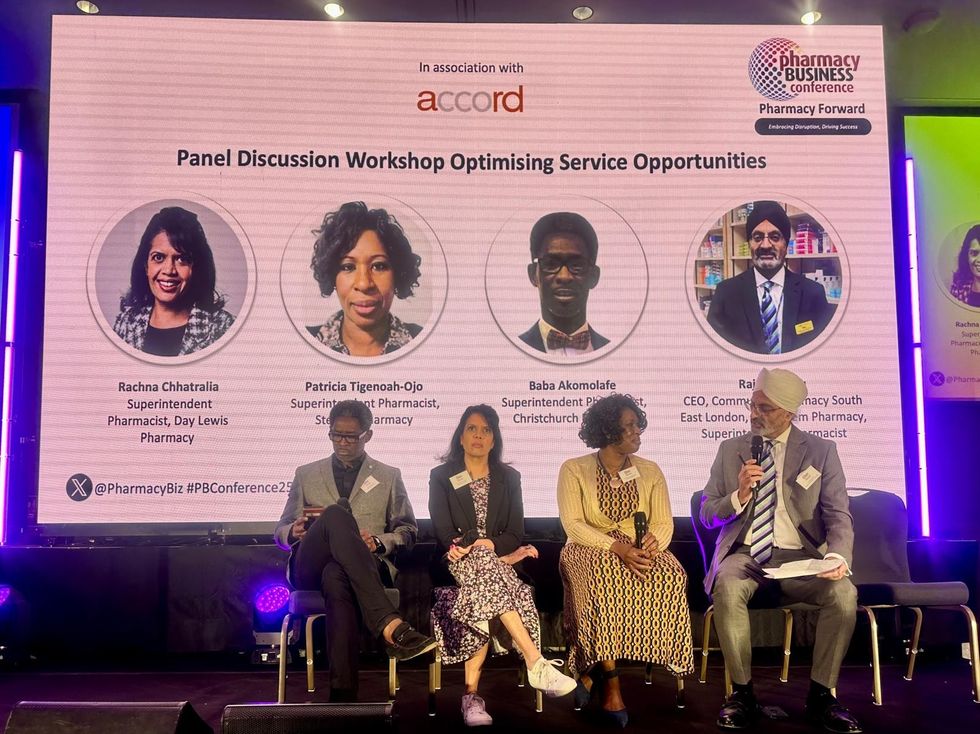 L-R: Baba Akomolafe, Rachna Chhatralia, Patricia Tigenoah-Ojo and Raj Matharu
L-R: Baba Akomolafe, Rachna Chhatralia, Patricia Tigenoah-Ojo and Raj Matharu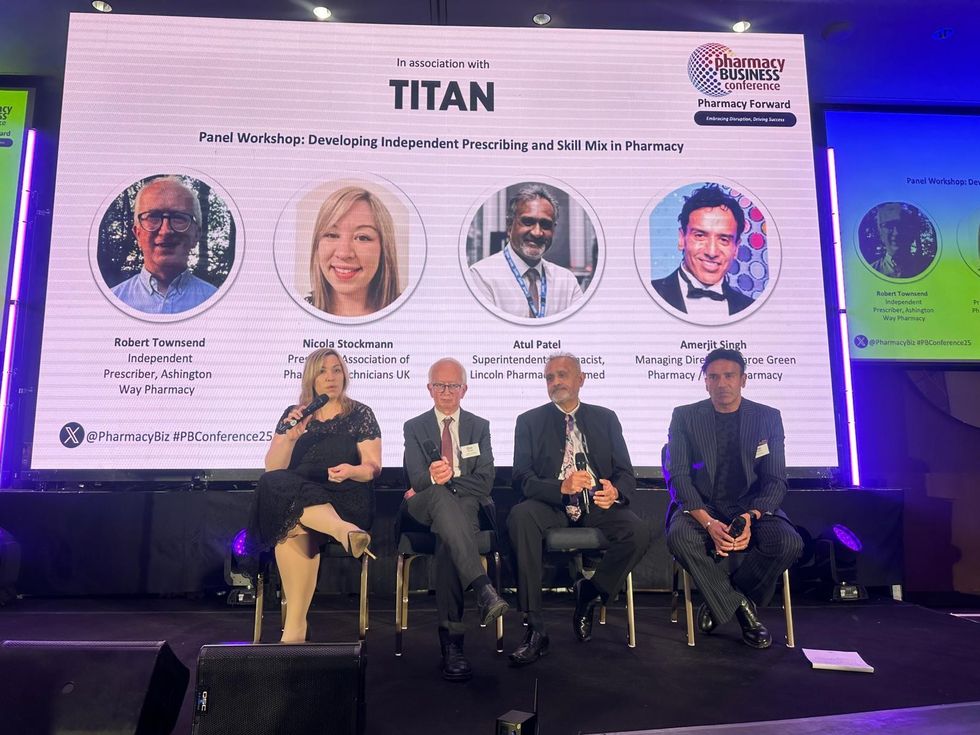 L- R: Nicola Stockmann, Robert Townsend, Atul Patel and Amerjit Singh
L- R: Nicola Stockmann, Robert Townsend, Atul Patel and Amerjit Singh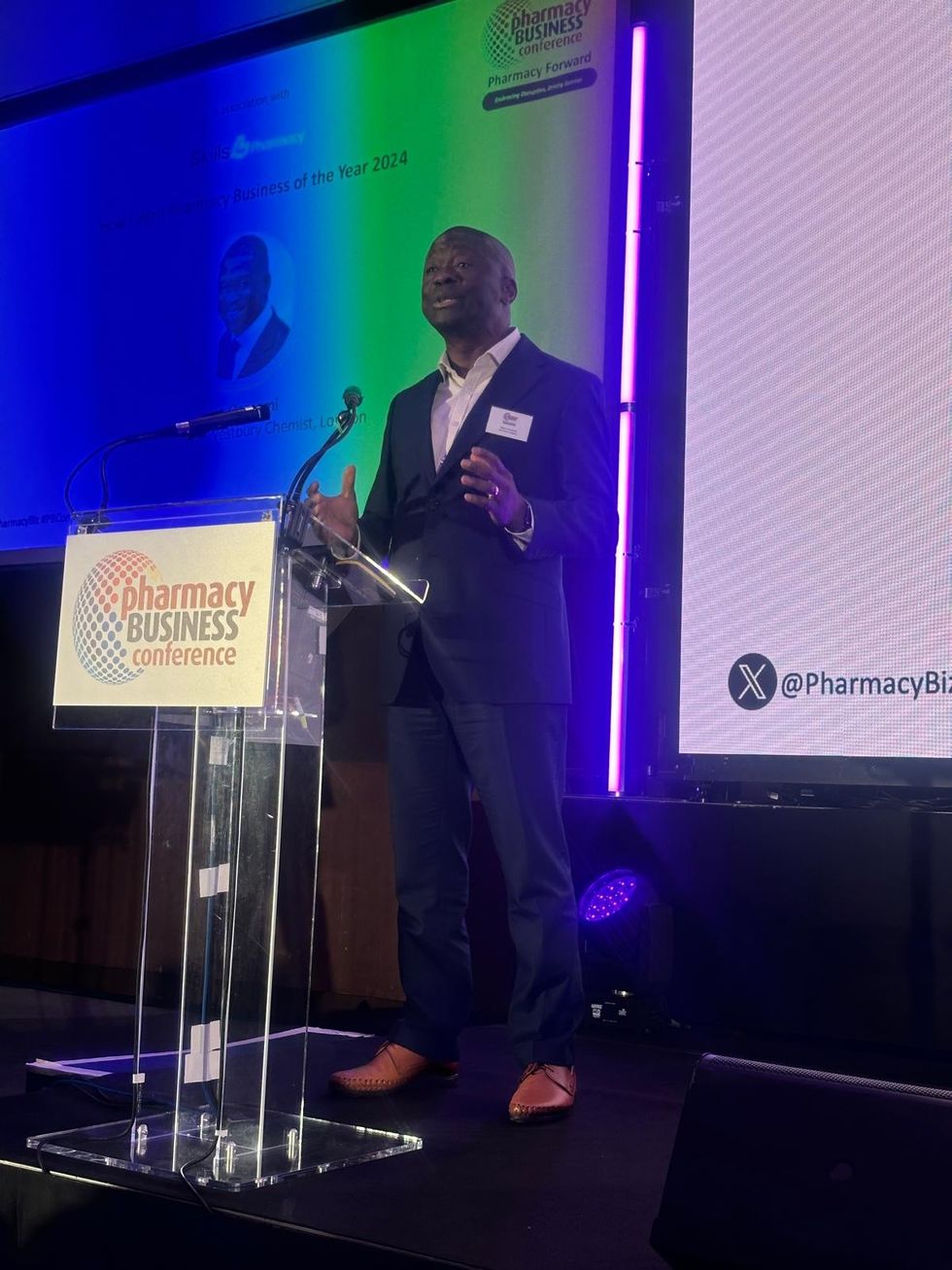 Wole Ososami, lead pharmacist at Westbury Chemist
Wole Ososami, lead pharmacist at Westbury Chemist








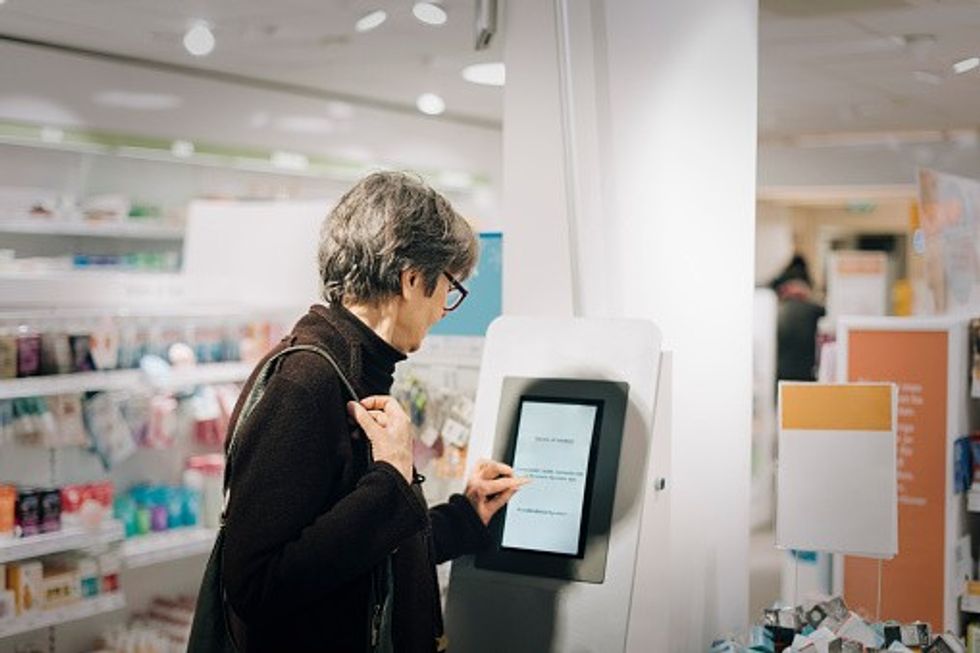 A woman using kiosk at pharmacy store gettyimages
A woman using kiosk at pharmacy store gettyimages  Pharmacist examining commissioning machine in pharmacy gettyimages
Pharmacist examining commissioning machine in pharmacy gettyimages